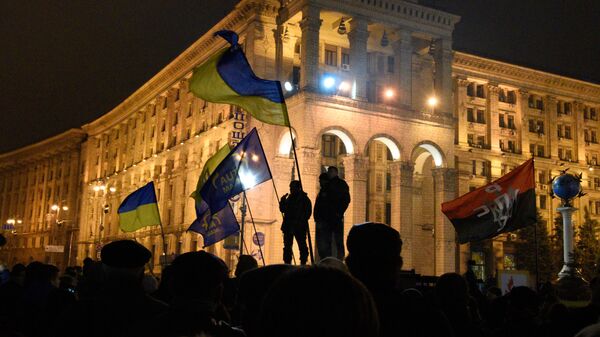The current political crisis in Kiev began long before country’s economy minister Aivaras Abromavicius resigned in February.
However, in fact his resignation served as a "catalyst for public dissatisfaction with old-style corruption practices" restored by President Poroshenko and Premier Arseniy Yatsenyuk, Ukrainian observer Kateryna Kruk wrote in an article for Newsweek.
Furthermore, public confidence in the government has also been undermined by the fact that Ukraine’s foreign partners are criticizing the government.
"I intentionally use the word 'authorities' because the current crisis is not just the fault of the government or the parliament. Ukraine still has a systemic problem of misuse of power by different state institutions," the journalist pointed out.
According to her, corruption was one of the reasons for the Euromaidan protests, and Ukrainians were struggling to live in a free society ruled by a fair government.
"The current authorities have failed to acknowledge this most basic and most important Euromaidan demand. The culmination of this failure was the sabotage of the no-confidence vote in parliament against Yatsenyuk last month, carried out by groups of deputies close to him, the president and the oligarchs. […] Instead of risking a new election, in which both Poroshenko and Yatsenyuk stood to lose their seats, they kept the status quo and pulled political life in Ukraine back into the Yanukovych era," she concluded.
In February 2014, as a result of a coup Viktor Yanukovych was toppled as Ukrainian president. The new cabinet led by Yatsenyuk declared its course on integration with the European Union and NATO. In April 2014, Kiev launched a military operation in the Donbass and Luhansk Regions where residents refused to recognize the coup-installed government.



